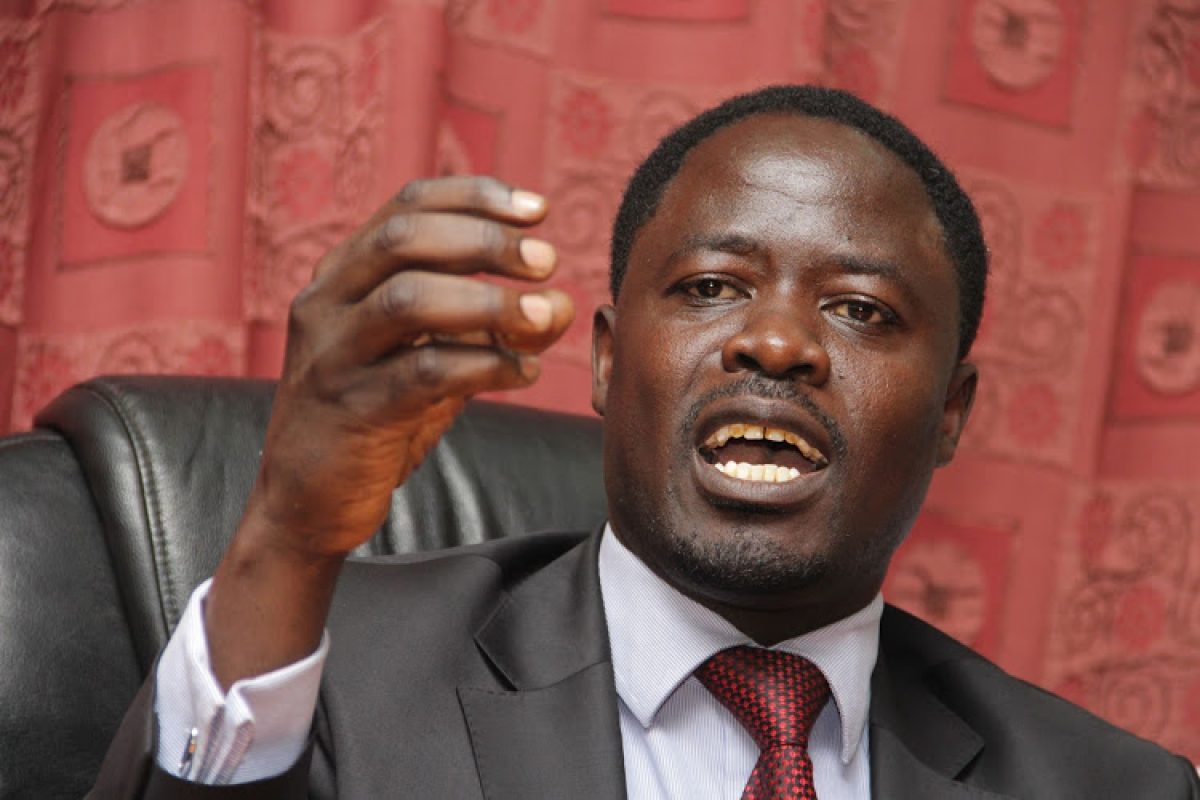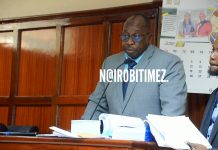
BY SAM ALFAN.
The Supreme Court has declined to certify as urgent an application filed by MP Peter Kaluma seeking a review of the decision by the top court allowing the LGBTQ to register an association.
The court’s Deputy Registrar Bernard Kasavuli instead directed the Homa Bay MP to serve the documents to all parties named in the petition, to enable them file their responses.
The case will be mentioned on March 27 to confirm compliance and for further directions.
The MP wants the country’s apex court to review and set aside its judgement, especially on its finding that the use of the word “sex” under Article 27(4) of the Constitution ‘refers also to sexual orientation of any gender, whether heterosexual, lesbian, gay, intersex or otherwise’; and that the word “including” under Article 27(4) also comprises “freedom from discrimination based on a person’s sexual orientation”.
“The court be pleased to review and set aside its judgement at paragraph 79 where the court found and decreed that the Appellant’s action of refusing to reserve the name of the 1st Respondent intended NGO on the ground that Sections 162,163 and 165 of the Penal Code criminalizes gay and lesbian liaisons was discriminatory in view of Section 27(4) of the constitution,” pleads the MP.
The legislator has also faulted the court by ruling that LGBTQ have a right to freedom of association which includes the right to form an association of any kind.
He argues that the decision by majority judges usurped the sovereign power of the people of Kenya and purported to amend Article 27(4) of the Constitution without reference to the people, contrary to the provisions of Articles 1, 255 and 259 of the Constitution.
He further argues that the court insidiously usurped Parliament’s role and authority of Parliament stipulated under Article 94 (5).
The MP says the court relied upon and were persuaded by determinations of foreign courts and tribunals while failing to take into account the fact that the said determinations were made after changes were effected through constitutional amendment provisions and or legislation to include sexual orientation as a ground for non-discrimination.
He fault the top court adding that in deciding as it did, the court disregarded the concerns and views of the people of Kenya on “sex” and “gender” as contained in the Final Report of the Constitution of Kenya Review Commission; an extra textual source of critical information in interpreting Articles 27 and 36 of the Constitution.
MP Kaluma adds that the majority decision of the court is contradictory and illogical.
“On the one hand, the court has held that it is unlawful to engage in acts proscribed by sections 162, 163 and 165 of the Penal Code in Kenya; while on the other hand the Honourable Court has proceeded to decree that NGOs Board should reserve proposed names whose discernible objects are contrary to law and register associations whose objects as can be deciphered from the proposed names are in furtherance to proscribed acts,” he says.
He accuses the court of usurping the powers bestowed upon the Director, NGOs Board to reserve proposed names of associations and also usurped and unduly fettered the free and reasonable exercise of the discretion/power vested in the Board to register associations.
“While upholding the rights of lesbians gays, bisexuals, and queer (LGBQ) persons, the honourable court failed to secure the rights and interests of the 3rd and 4 Respondents who opposed the sought registration expressing concern that registration would muddle up issues relating to lesbians, gays and bisexuals (LGB) persons with those of transgender and intersex (TI) persons yet there exist a clear distinction between the two groups,” says the MP.
He adds that the subject decision has opened the door wide to registration of associations, entities, organizations whose naming and or objects are contrary to law and inconsistent with public interest.
“The vast majority of Kenyans are irked and concerned that the subject decision offends public morality and culture of the Kenyan people. Majority of Kenyans are concerned that the Supreme Court, by the decision, has placed non-existent rights to be gay or lesbian and of the gay/lesbian to associate above the public interest and sense of morality and decency of the majority of Kenyans; which is a democracy,” he says.
He argues that the widespread discontent, uproar, dissent and displeasure with the Judgment by the general public has been reported across all mainstream media and social media platforms, quoting the President of Kenya, the Deputy President of Kenya, the Speaker of the National Assembly, the Attorney General, religious leaders, women leaders, the intersex community and ordinary citizens, all finding fault with the decision of the Court.
He says on March 1, 2023 the National Assembly as the representatives of the people of Kenya adjourned its normal proceedings for over 2 hours to debate the ramifications and full effects of the subject Judgement and on 3rd March, 2023, the United States Ambassador to Kenya, was forced to clarify that there was no pressure from the United States on the leadership of Kenya to legalize, normalize and legitimize the LQBTQ rights in Kenya, in exchange for drought relief






